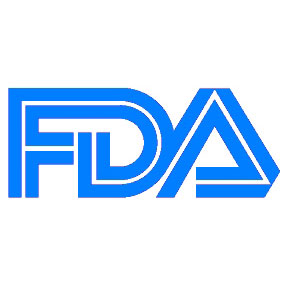 Celgene Corporation announced that the U.S. Food and Drug Administration (FDA) has expanded the existing indication for Revlimid (lenalidomide) in combination with dexamethasone to include patients newly diagnosed with multiple myeloma (NDMM). Revlimid plus dexamethasone was previously approved in June 2006 for use in multiple myeloma patients who have received at least one prior therapy.
Celgene Corporation announced that the U.S. Food and Drug Administration (FDA) has expanded the existing indication for Revlimid (lenalidomide) in combination with dexamethasone to include patients newly diagnosed with multiple myeloma (NDMM). Revlimid plus dexamethasone was previously approved in June 2006 for use in multiple myeloma patients who have received at least one prior therapy.
“The approval of Revlimid as an option for use in all patients with multiple myeloma represents a new paradigm in the management of this disease,” said Kenneth Anderson, M.D., Director, Jerome Lipper Multiple Myeloma Center, Dana-Farber/Brigham and Women’s Cancer Center. “We now have clinical evidence demonstrating that starting and keeping newly diagnosed multiple myeloma patients on REVLIMID significantly improves progression-free survival.”
The approval was based on safety and efficacy results from phase III studies, including the FIRST trial (MM-020/IFM 07-01), which evaluated continuous Revlimid in combination with dexamethasone (Rd Continuous) until disease progression versus melphalan, prednisone and thalidomide (MPT) for 18 months as the primary analysis, and a fixed duration of 18 cycles of Rd (Rd18) as a secondary analysis, in 1,623 newly diagnosed patients who were not candidates for stem cell transplant.
In this randomized, open-label, three-arm trial, median progression-free survival (PFS), the length of time a patient lives from study randomization to disease progression or death was the primary endpoint of the study. PFS was significantly longer for patients receiving Rd Continuous (25.5 months) than for those treated with MPT (21.2 months; HR=0.72; p=0.0001). Median overall survival (OS) in the two groups was 58.9 months and 48.5 months, respectively (HR 0.75; 95% CI 0.62, 0.90) based on a March 3, 2014 interim OS analysis. Patients in the Rd Continuous arm had a 25% reduction in the risk of death compared to patients in the MPT arm.
Safety results showed that adverse reactions reported in ≥20% of NDMM patients in the Rd Continuous, Rd18 or MPT arms included diarrhea (45.5%, 38.5%, 16.5%), anemia (43.8%, 35.7%, 42.3%), neutropenia (35.0%, 33.0%, 60.6%), fatigue (32.5%, 32.8%, 28.5%), back pain (32.0%, 26.9%, 21.4%), insomnia (27.6%, 23.5%, 9.8%), asthenia (28.2%, 22.8%, 22.9%), rash (26.1%, 28.0%, 19.4%), decreased appetite (23.1%, 21.3%, 13.3%), cough (22.7%, 17.4%, 12.6%), pyrexia (21.4%, 18.9%, 14.0%), muscle spasms (20.5%, 18.9%, 11.3%) and abdominal pain (20.5%, 14.4%, 11.1%).
The most frequently reported Grade 3 or 4 events in the Rd Continuous arm (until disease progression) included neutropenia (27.8%), anemia (18.2%), thrombocytopenia (8.3%), pneumonia (11.3%), asthenia (7.7%), fatigue (7.3%), back pain (7%), hypokalemia (6.6%), rash (7.3%), cataract (5.8%), dyspnea (5.6%), DVT (5.6%) and hyperglycemia (5.3%).
“At Celgene, we are very happy with the FDA’s decision, which adds information on the use of REVLIMID plus dexamethasone as a first-line treatment for multiple myeloma to the prescribing information,” said Jacqualyn A. Fouse, Ph.D., President, Global Hematology and Oncology for Celgene. “Now, as part of our commitment to improving the lives of patients living with this disease, our next step is to make the benefits of this treatment regimen available to those now eligible under the expanded indication.”
Celgene currently has an application under review with the European Medicines Agency (EMA) for approval to use Revlimid for the treatment of adult patients with previously untreated multiple myeloma who are not eligible for transplant. The EMA’s Committee for Medicinal Products for Human Use (CHMP) published a positive opinion for this application in December 2014.
Filed Under: Drug Discovery




